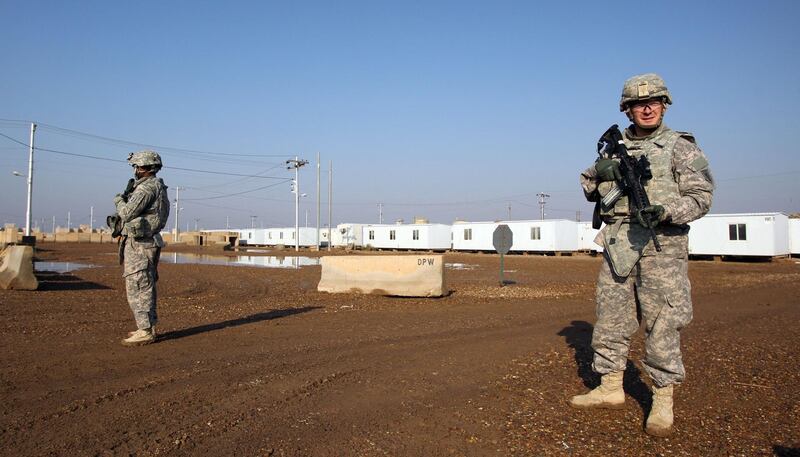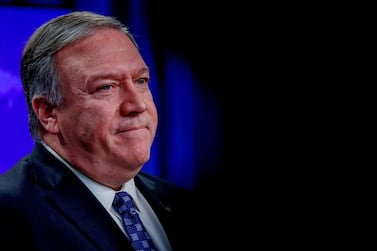Iraq's military has agreed to resume joint operations against ISIS, the global coalition against the extremist group said on Friday, four weeks after they were suspended in response to the US assassination of a top Iranian general in Baghdad.
The US-led Global Coalition to Defeat ISIS announced the decision in a tweet quoting a statement from the Iraq military.
"To exploit the time that remains for the Coalition before the new relationship is set up ... it was decided to carry out joint actions which enable our forces to fight Daesh," it quoted the Iraqi forces as saying.
A US State Department official told The National this week that the coalition "remains committed, along with Iraqi security forces, to our shared goal of defeating ISIS remnants".
The official said the coalition continued to have advisers in the operations centres of several provinces and held regular meetings with Iraqi security forces at all levels.
“The US has made clear the importance of the continued presence of the Global Coalition to Defeat ISIS in Iraq,” the official said.
The US has about 5,200 troops stationed in various bases around the country who are primarily involved in training Iraqi forces.
While ISIS remains a concern in Iraq, the coalition has not seen a rise in activity over the past month, the official said.
Iraq declared victory over ISIS in late 2017 after brutal battles to recapture territory seized by the extremists in early 2014. The US provided air and ground support to the Iraqi military, which was also supported by a force of largely Shiite militias trained and armed by Iran.
Coalition forces remained in Iraq to prevent a resurgence of ISIS and continue training forces, but these operations were suspended amid widespread anger over the US killing of Iranian general Qassem Suleimani and an Iraqi militia commander in a drone strike on January 3. Suleimani had overseen the operations of the Iraqi militias, which were incorporated into the state security forces after the defeat of ISIS.
On January 5, Iraq's parliament passed a non-binding resolution calling for the end of foreign troop presence in the country. The same day, the coalition announced it was suspending the fight against ISIS and other operations to focus on protecting its troops and bases in Iraq.
Iraqi bases hosting US troops had been subjected to frequent rocket attacks in previous weeks amid mounting tensions between Washington and Tehran. The US blamed the Iran-backed Iraqi militias and retaliated with air strikes when an attack in late December killed an American civilian contractor.
Iran fired missiles at US troop positions in Iraq on January 8 in response to the killing of Suleimani. The US initially said no soldiers were injured but has since issued a rising count of troops being treated for traumatic brain injury from the blasts. The Pentagon on Thursday put the number of troops affected at 64.







